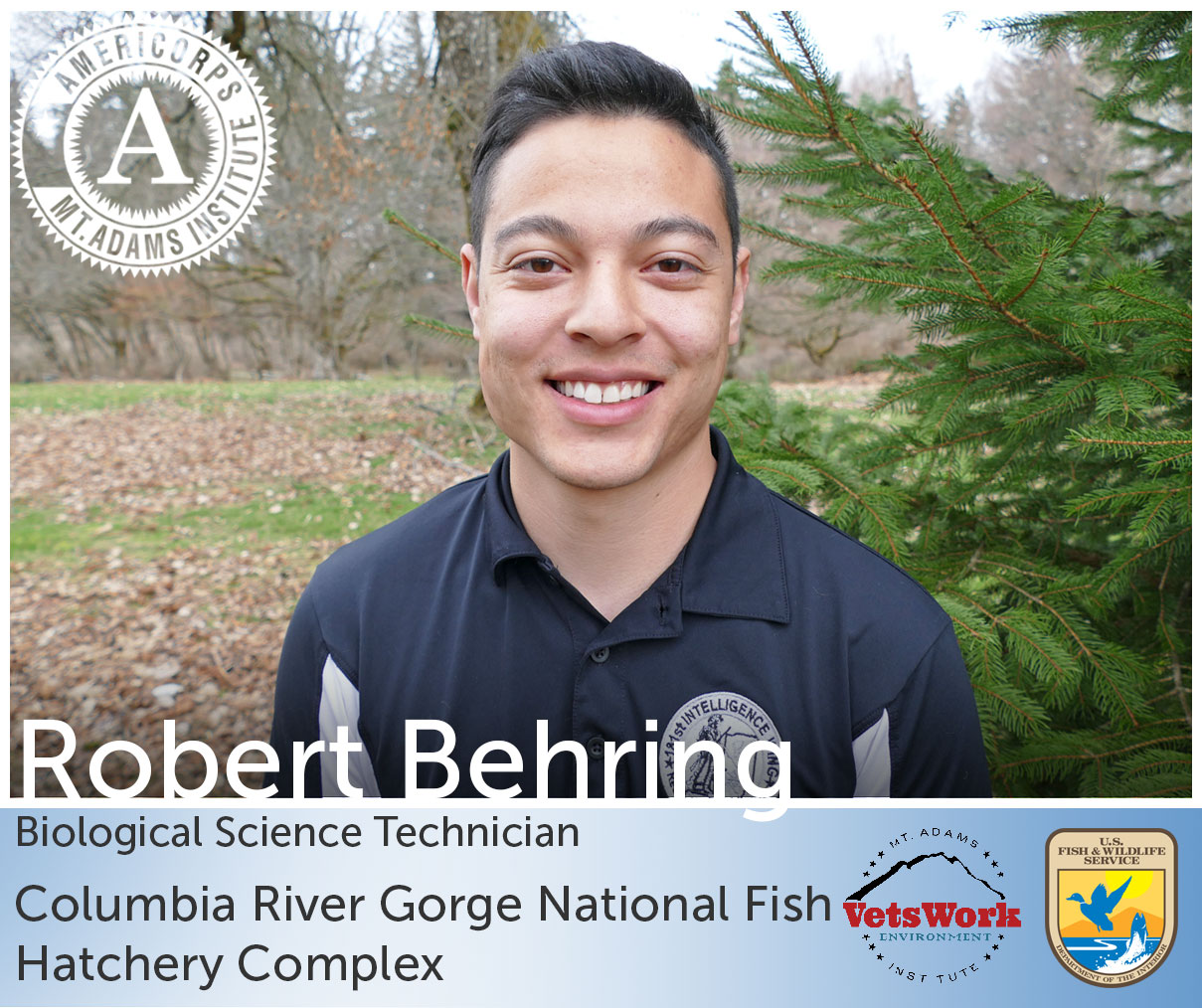 To jump into another year of volunteering wasn’t an easy choice. But to be honest, pursuing a career in our living earth isn’t easy either. I already know I have a passion for fishes and at this point I feel like I do know a good amount about them too. I have a B.S. in biology, a minor in fisheries, research experience, an internship and volunteering at multiple national aquariums, and work in many retail aquarium stores. However, I still feel like I don’t know enough. I want to make a difference in conservation, and I want to go into that work knowing all I can about the animals I’ll be working with. This opportunity with Mt. Adams Institute, AmeriCorps, and the U.S. Fish and Wildlife Service will easily help me on my way to understanding more about these animals and the ways we can help conserve our Earth.
To jump into another year of volunteering wasn’t an easy choice. But to be honest, pursuing a career in our living earth isn’t easy either. I already know I have a passion for fishes and at this point I feel like I do know a good amount about them too. I have a B.S. in biology, a minor in fisheries, research experience, an internship and volunteering at multiple national aquariums, and work in many retail aquarium stores. However, I still feel like I don’t know enough. I want to make a difference in conservation, and I want to go into that work knowing all I can about the animals I’ll be working with. This opportunity with Mt. Adams Institute, AmeriCorps, and the U.S. Fish and Wildlife Service will easily help me on my way to understanding more about these animals and the ways we can help conserve our Earth.
So here I am, I live on a hill overlooking Drano Lake in Cook, WA. For the next year I will be working at the Little White Salmon National Fish Hatchery. I’m interning as a biological science technician, in hatchery terms they’re basically fish culturists. However, as an intern I have a special opportunity to learn about everybody else’s job here as well. This hatchery releases 5.5 million Chinook Salmon and spawns to provide millions of eggs for hatcheries throughout the U.S. So far, I’ve helped release roughly a million Spring run Chinook Salmon and take care of that roughly 5.5 million Chinook for their year. That’s just the basics though; animal husbandry is a dirty and hard job. Most of what I do includes cleaning Salmon raceways either by brushing or power washing empty ones. A lot of the rest of that time includes feeding and weighing out feed for the next feeding. You may think this sounds pretty repetitive, and you’re definitely right, no need to sugarcoat it. But animal husbandry is what you make of it. In the end, you’re making a world of difference to the animals you’re responsible for and there’s a lot of satisfaction in knowing you’re doing good work. Not only that but the work here at Little White bolsters wild Chinook populations, provides fish for tribal fishing, and fosters an appreciation for our aquatic resources by anglers nationwide.
In this near month and a half, I’ve been able to learn all about the inner workings of hatchery practices and equipment as well as visit one other hatchery in the Columbia River Gorge. Coming in the next few months I’ll be visiting the Carson Hatchery as well as tour the Abernathy Fish Technology Center. Surprisingly, I have had so much support with this hatchery and Mt. Adams Institute that I have never had in the past with other internships and volunteering. Having the on-site housing and a stipend is much appreciated and has attributed to such an amazing time here in the Columbia River Gorge. So far, I would rate this internship as the best I’ve done and I hope it translates to a real career and life success.

